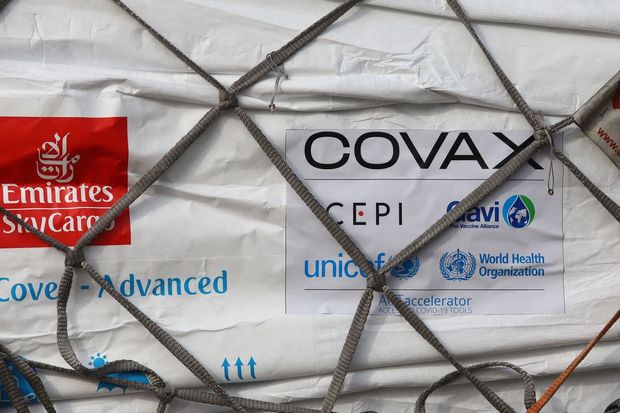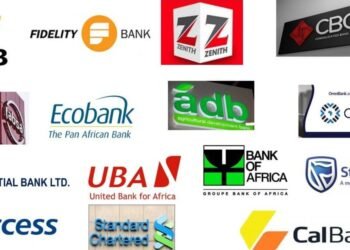According to the Global Alliance for Vaccines and Immunizations (GAVI), the economic return on vaccinations ranges between 12% and 18% annually, therefore, there is much optimism for a faster economic rebound as Ghana takes delivery of its first doses of the COVID-19 vaccines and has subsequently commenced the vaccination of its citizens on March 2, 2021.
The recent vaccination is expected to boost the confidence of economic agents in the country leading to the re-opening of businesses with the rippling effects being a rise in productivity, rise in output, higher profits, gain in employment, and ultimately, better living conditions in the country.
The success of vaccination programs cannot be underestimated as several studies have shown that vaccines prevent millions of deaths every year across the globe. Vaccination programs are an investment in a country’s human capital as they lead to an improvement in public health, life expectancy, work performance, and can also reduce government’s spending on disease treatment and control.
Without a vaccine, new diseases can become widespread because immunity may take longer to develop. Even before the arrival of the vaccine, the central bank indicated that the Ghanaian economy is recovering faster than expected. Therefore, the arrival of the vaccine is expected to reduce the infection rates, lower the death toll and open up the economy for faster growth.

The arrival of the vaccine in Ghana reopened a new chapter in Ghana’s fight against the coronavirus pandemic which has had a severe toll on almost all the sectors of the economy. From a growth rate of 4.9 percent at the end of the first quarter of 2020, the economy shrunk by 3.2 percent and 1.1 percent in the second and third quarters respectively. Available data points to the contraction in Ghana’s GDP last year as the worst recorded in almost 37 years. This shows that Ghana has tasted its fair share of the current pandemic.
Also, Inflation which has been kept in the single digit for quite some time rose to a record high of 11.4 percent in July 2020. Inflation was stable at 7.8 percent in the first three months of 2020, however as a result of the lockdown in March, inflation rose to 10.6 percent at the end of April. This was driven by the panic buying of food which resulted in higher prices across the country. Inflationary pressures have since slowed down as the overall cost of goods eased gradually in the latter part of 2020 and has continued into 2021 with inflation currently standing at 9.9 percent at End-January 2021. The arrival of the COVID-19 vaccine is expected to further reduce uncertainties surrounding the activities of the economy and may lower inflationary expectations.
The coronavirus has also worsened the country’s debt woes as COVID-19 expenditures increase and the government has to keep resorting to borrowing to contain the virus. The country’s debt has breached the sustainable threshold as it exceeds the 70 percent benchmark. The Bank of Ghana had earlier warned that a sharp fiscal correction in 2021 is unlikely. But, will the arrival of the vaccine make this likely?
The coronavirus pandemic has affected a lot of businesses in the country resulting in loss of jobs, the collapse of businesses, and a cut in the salaries of some workers. Surveys from the Ghana statistical service show that about 770,000 workers had their wages reduced, 42,000 workers laid-off, and about 85,000 businesses shut down during the partial lockdown. The school closure also affected a lot of School children and above all private school teachers who were left uncared for in the country. However, the government’s decision to reopen the schools across the country despite the surge in COVID-19 cases may payoff as a result of the ongoing vaccination. The reopening of schools is key in the recovery process as teachers, especially private school teachers, begin to earn incomes.
“Without making education a pillar of recovery plans alongside health, jobs, and climate, societies will fuel rather than reverse rising inequality, poverty, and social divides” .
Stefania Giannini, Assistant Director-General for Education, UNESCO
The arrival of the vaccine is timely as it comes at a time when the country is experiencing a surge in COVID-19 cases which indicates the spread of the second wave. The Central Bank also warned that the second wave of the virus poses a threat to the recovery and may prolong the process.
Whilst the vaccination brings some optimism of economic rebound, the down risks are high. There is the likelihood of citizens becoming complacent and not observing the COVID-19 protocols with the rationale that a vaccine has been found. Should this happen, the much-anticipated benefits may not be realized and may end up derailing the progress the country is making in bringing the economy back to life. The sense of responsibility of the Ghanaian has therefore become more vital than ever. COVID-19 vaccine COVID-19 vaccine COVID-19 vaccine



















